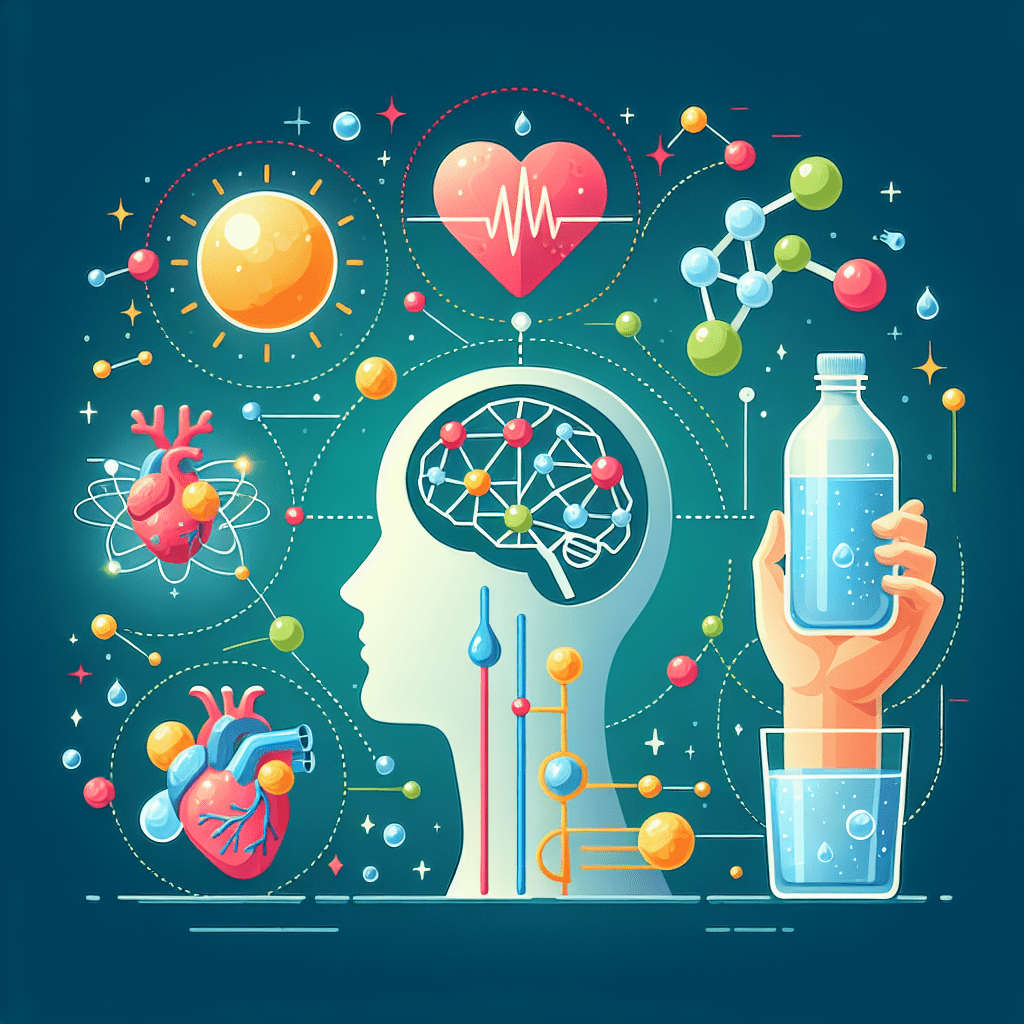The Science of Hydration: How Drinking Water Impacts Your Health

Introduction
The essence of hydration transcends mere quenching of thirst; it is a cornerstone of optimal health and well-being. Understanding the science behind hydration and its profound effects on the body can empower individuals to make informed decisions about their water consumption habits. This article delves into the mechanisms by which water influences physiological processes and outlines the myriad health benefits derived from maintaining proper hydration levels.
The Physiology of Hydration
Water is the most abundant molecule in the human body, constituting approximately 60% of the adult body weight. It plays a critical role in various bodily functions, including temperature regulation, waste removal, and the transport of nutrients and oxygen to cells. The process of hydration involves the absorption and distribution of water throughout the body, a task that is crucial for maintaining cellular homeostasis and overall health.
Health Benefits of Adequate Hydration
Proper hydration is associated with numerous health benefits. It enhances cognitive function, improves physical performance, and supports digestive health. Additionally, adequate water intake is linked to a reduced risk of chronic diseases such as urinary tract infections, hypertension, and kidney stones. The significance of hydration extends to the skin as well, where it promotes elasticity and a more youthful appearance.
"Hydration is vital for maintaining cardiovascular health." - The American Heart Association
Hydration and Disease Prevention
Emerging research underscores the role of hydration in disease prevention. Studies have demonstrated that maintaining optimal hydration can mitigate the risk of developing conditions such as bladder cancer, constipation, and even type 2 diabetes. These findings highlight the importance of regular water intake as a simple yet effective preventive healthcare measure.
"Dehydration can negatively affect your mood and cognitive function." - Journal of Nutrition
Hydration Strategies for Optimal Health
To reap the full benefits of hydration, it is essential to adopt practical strategies that ensure adequate daily water intake. This includes drinking water throughout the day, consuming water-rich foods, and monitoring hydration status through physical cues like urine color. Tailoring water consumption to individual needs, considering factors such as climate and activity level, is also crucial for maintaining hydration balance.
Conclusion
In summary, the science of hydration offers compelling insights into its critical role in supporting a wide range of physiological functions and promoting overall health. From enhancing cognitive performance to preventing chronic diseases, the benefits of maintaining proper hydration are profound and multifaceted. As aptly stated by the American Heart Association, "Hydration is vital for maintaining cardiovascular health." This underscores the overarching importance of water intake for heart health, among other benefits. By adopting consistent hydration habits, individuals can significantly impact their health and well-being, emphasizing the adage that sometimes, the simplest measures are the most effective.
"Drink water and stay healthy; it's the essence of heart health." - Anonymous



